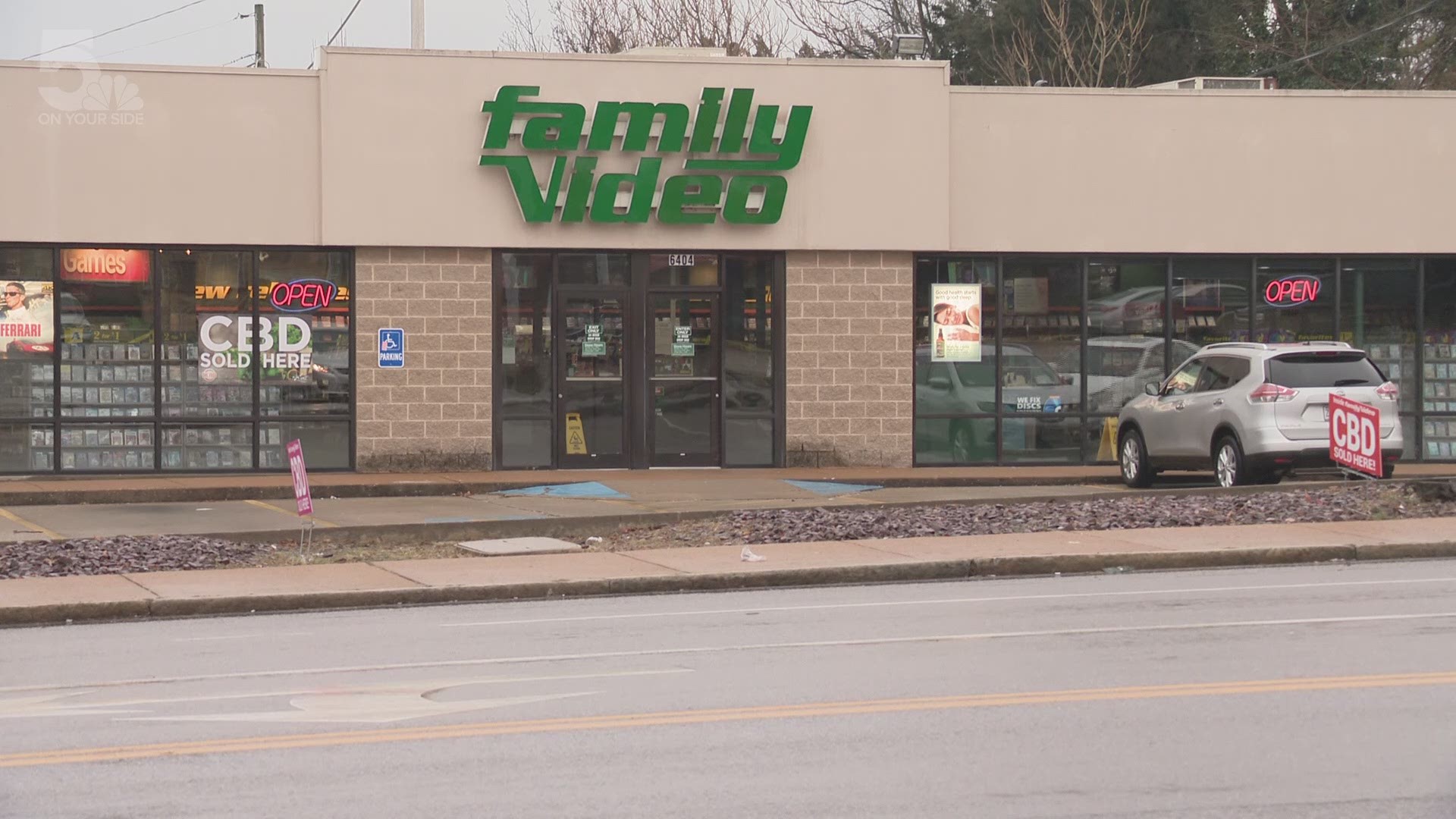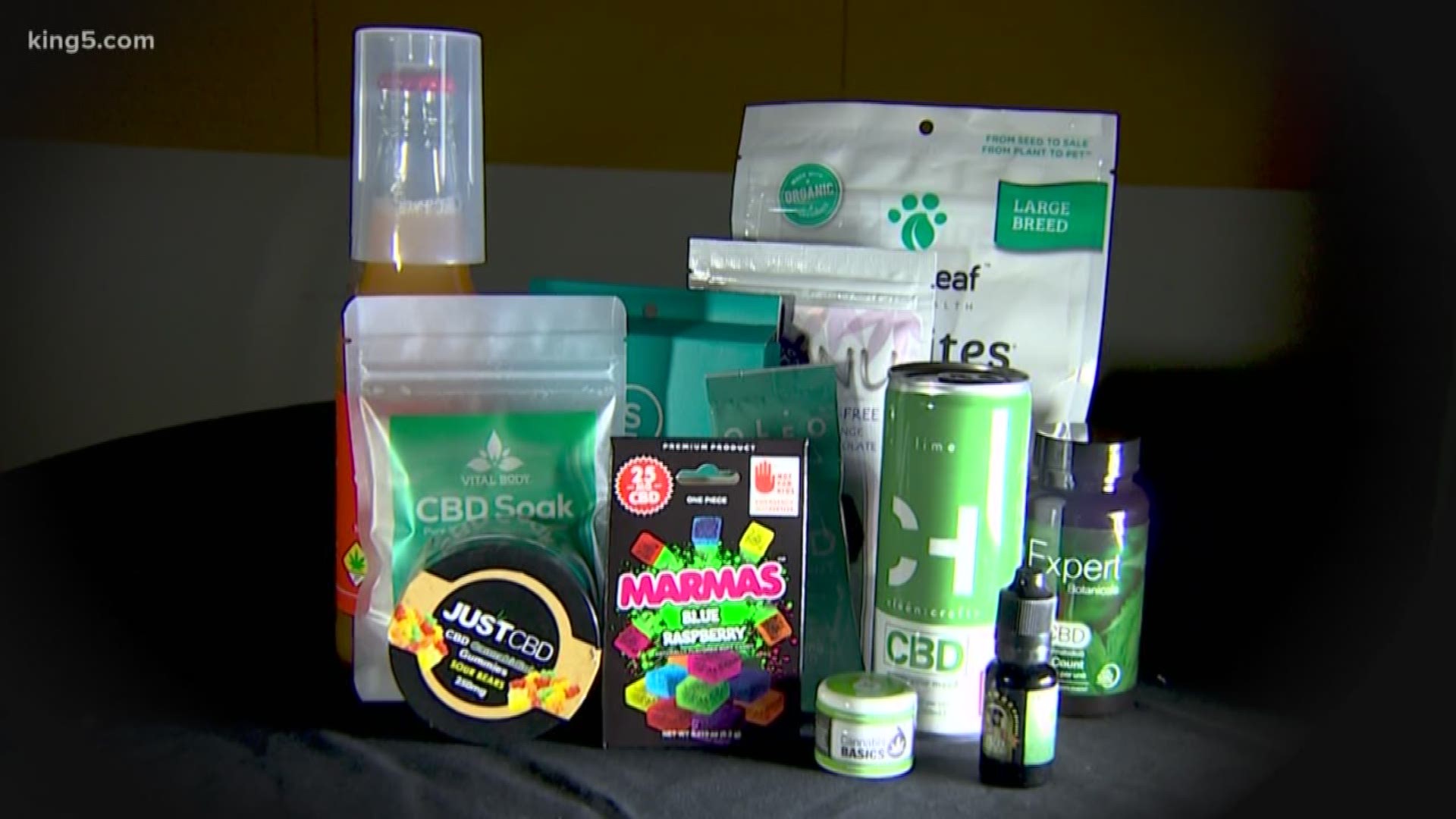ST. LOUIS — CBD is popping up on store shelves faster than the FDA can regulate it, and experts say that means it's like the Wild West.
In St. Louis, we found CBD at pet food shops, advertised at Family Video stores and on the menu at a restaurant in an unexpected location: The Hill.
Lou Boccardi’s Restaurant – in the St. Louis neighborhood with deep roots in traditional, Italian food – offers a CBD dining experience with items like penne pasta, pizza and cannoli, each with a daily dose of CBD.
"The biggest question is no, you're not going to get high,” Lilly Boccardi said.
Boccardi considers herself a pioneer of sorts. She said her family restaurant is the first in St. Louis to offer a CBD menu.
So, what is CBD? It stands for Cannabidiol, a compound derived from the hemp plant.
For CBD products to be legal, they must contain less than .3% THC, the psychoactive ingredient in marijuana.
Users say it helps relieve pain, inflammation and even anxiety.
"I was a runner for many years, and I use it for my knees,” Boccardi said. "I believe it really does work. I mean, that's the thing. I really do believe it."
However, doctors warn consumers to be careful about CBD use.
Dr. Evan Schwarz, an associate professor of emergency medicine at Washington University in St. Louis, said the science behind CBD's effectiveness is minimal, and researchers are still learning about it. While it's a big business, he said, doctors don't know if it's even beneficial.
Consumer Reports surveyed Americans last year and found nearly a quarter of adults had tried CBD. Most of them said it worked.
The FDA has approved CBD in only one prescription – for epilepsy.
"In all my years covering the FDA and pharmaceutical products, there's nothing that has fallen into this category,” Consumer Reports investigative reporter Lisa Gill said.
She has spent years researching CBD at Consumer Reports.
"Understand that what you're getting is not a federally approved product, even though it's federally legal,” she said.
The FDA has requested $5 million to develop CBD policies, but right now, it doesn't regulate any CBD product on store shelves.
The FDA warns many products don’t contain the levels of CBD that they claim.
5 On Your Side's sister station in Seattle tested a dozen different products and found the label advertised the wrong amount of CBD nearly half the time.
So, how to do you make sure you're buying the real deal?
“The first question you should ask is, ask the shop owner, ‘Do you have the certificate of analysis that I can look at?’” Gill said.
The certificate of analysis is a document that'll show the breakdown of what's in the product you want to buy.
Gill said it’s possible that document could be forged or inaccurate in some cases, but its availability is important.
"If they don't have it, or they don't want to give it to you, or they hesitate, you should go somewhere else,” she said.
Illinois marijuana dispensaries also could be a good option if you're worried about what's inside the bottle. The limited CBD products sold there are required to undergo state-mandated testing, and the contents must be printed on the label.
But because the dispensaries sell recreational marijuana, many CBD products sold there also will contain higher levels of THC.
At Lou Boccardi’s on The Hill, Lilly Boccardi said trust is key.
"No one touches these products except myself because I guarantee every single one of these products has the exact amount,” she said.
Boccardi said her CBD comes from a local manufacturer, and she's working to label her own product for her customers.
"They would buy it from me because they know if I do it, it's what it says it is,” she said.


